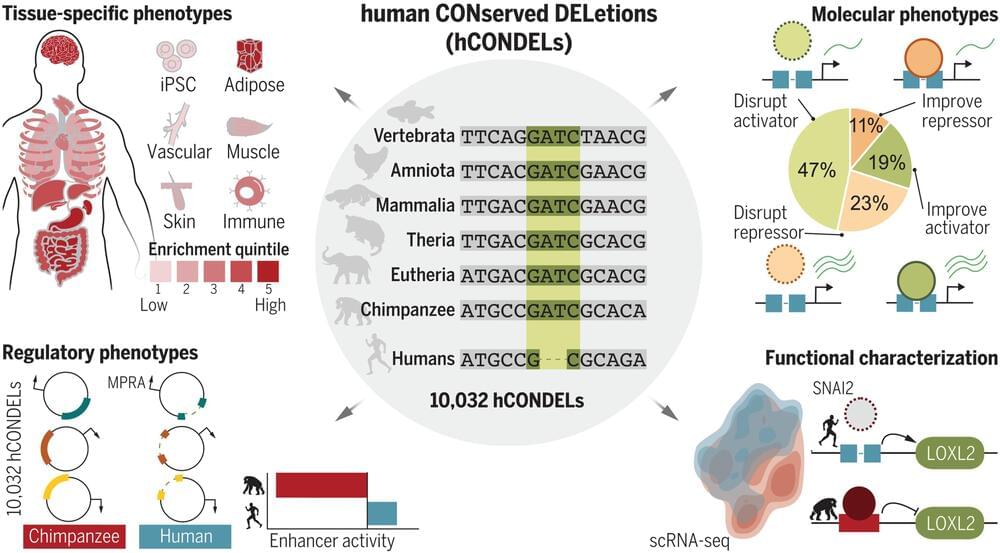What the human genome is lacking compared with the genomes of other primates might have been as crucial to the development of humankind as what has been added during our evolutionary history, according to a new study led by researchers at Yale and the Broad Institute of MIT and Harvard.
The new findings, published April 28 in the journal Science, fill an important gap in what is known about historical changes to the human genome. While a revolution in the capacity to collect data from genomes of different species has allowed scientists to identify additions that are specific to the human genome —such as a gene that was critical for humans to develop the ability to speak—less attention has been paid to what’s missing in the human genome.
For the new study researchers used an even deeper genomic dive into primate DNA to show that the loss of about 10,000 bits of genetic information—most as small as a few base pairs of DNA—over the course of our evolutionary history differentiate humans from chimpanzees, our closest primate relative. Some of those “deleted” pieces of genetic information are closely related to genes involved in neuronal and cognitive functions, including one associated with the formation of cells in the developing brain.
